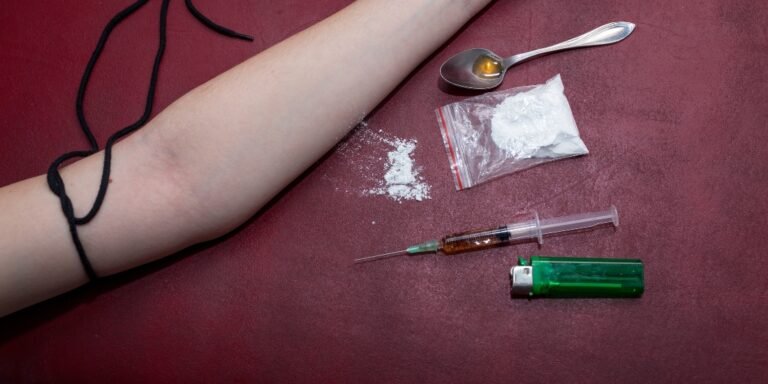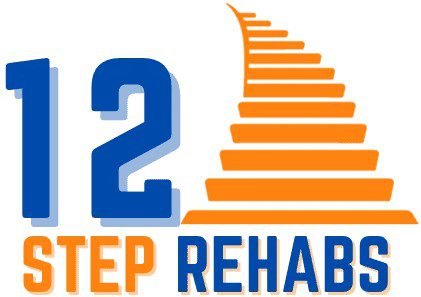Heroin Addiction
Heroin Addiction: Definition, Signs, Side Effects, and Treatment
Heroin addiction is a serious condition resulting from the use of a powerful and illegal opioid derived from morphine. Heroin is often injected, snorted, or smoked, producing an intense rush of euphoria followed by deep relaxation. This immediate, overwhelming effect makes heroin highly addictive and dangerous, quickly drawing individuals into its grasp.
Even after only a few uses, the body begins to crave the intense relief that heroin provides, leading to a cycle of addiction that harms both physical and mental well-being. This addiction isn’t a matter of willpower; heroin fundamentally alters brain function, binding to receptors that regulate pain, pleasure, and essential processes. Over time, the brain becomes dependent on heroin, making it difficult to break free from its grip.
How Common is Heroin Addiction?
Heroin addiction remains a significant issue worldwide, with varying trends across regions. As of the latest available data, approximately 1 million people in the European Union (EU) are considered high-risk opioid users, with heroin being the most frequently used illicit opioid in this group.
Globally, the United Nations Office on Drugs and Crime (UNODC) reports that while opium production has seen a dramatic decline in Afghanistan, dropping by 95% between 2022 and 2023, synthetic opioids are increasingly filling the gap in the market.
Understanding heroin addiction’s prevalence is crucial for addressing its widespread impact. Heroin addiction not only devastates the health of the individual but also imposes significant social and economic costs on society. The addiction contributes to increased crime rates, strains on the healthcare system, and lost productivity. Additionally, the stigma surrounding heroin use often prevents those affected from seeking help, exacerbating the challenges they face in overcoming addiction. The social and cultural impact of heroin addiction is profound, affecting not only the users but also their families, friends, and communities.
Why is Using Heroin Addictive?
Heroin is one of the most addictive substances due to its potent effects on the brain’s reward system. When heroin enters the brain, it is converted back into morphine and binds to opioid receptors, particularly in areas involved in pain and pleasure. This binding triggers an intense release of dopamine, the neurotransmitter responsible for feelings of euphoria and well-being. The powerful rush of the pleasure associated with heroin use creates a strong psychological desire to repeat the experience of the drug.
Over time, the brain adapts to the constant presence of heroin, leading to tolerance where more of the drug is needed to achieve the same effects, and dependence where the absence of the drug causes withdrawal symptoms such as anxiety, irritability, muscle aches, and cravings.
Is Heroin Addictive from the First Try?
Heroin has a notoriously high potential for addiction, even from the first use. The intense euphoria that follows initial heroin consumption can create a powerful desire to experience the sensation again. Although not everyone who tries heroin will become addicted immediately, the risk of developing an addiction is extremely high, particularly due to the drug’s rapid and profound effects on the brain.
Many different factors such as the dosage, and the individual’s psychological and genetic predispositions can influence the likelihood of becoming addicted after the first try, however, the potential for addiction is always present, making even experimental use extremely risky.

Signs of Heroin Addiction?
Recognising the signs of heroin addiction is crucial for early intervention and treatment. Heroin addiction manifests through various physical, psychological, and behavioural symptoms. If you or someone you love is battling heroin addiction, these warning signs could be the crucial first step toward recovery:
Physical Signs: These may include noticeable weight loss, drowsiness, constricted pupils, needle marks on arms or other parts of the body, and frequent nosebleeds if the drug is snorted. Users may also show poor hygiene and an overall decline in physical appearance.
Psychological Signs: Individuals may experience intense cravings for heroin, depression, anxiety, and mood swings. Users often become preoccupied with obtaining and using the drug, leading to a loss of interest in previously enjoyed activities and a decline in overall mental health.
Behavioural Signs: Heroin addiction often leads to secretive or suspicious behaviour, neglect of responsibilities at work, school, or home, financial problems due to spending large amounts of money on the drug, and engaging in illegal activities, such as theft, in order to fund the addiction. Social withdrawal and isolation from friends and family are also common.
Causes, Effects, and Treatments of Heroin Addiction
Causes of Heroin Addiction
- Genetic Factors: Genetic predisposition can play a significant role, with certain variations making some individuals more susceptible to addiction.
- Psychological Factors: Underlying mental health disorders like depression, anxiety, or PTSD can increase the risk, as individuals may use heroin to self-medicate.
- Social and Environmental Factors: Peer pressure, exposure to drug-use environments, unstable or stressful living conditions, and trauma can all contribute to heroin addiction.
Side Effects of Heroin Addiction
Short-Term Effects:
- Euphoria followed by Drowsiness: The initial rush of pleasure is quickly followed by extreme drowsiness, which can last for several hours.
- Nausea and Vomiting: Heroin can induce nausea, vomiting, and dry mouth.
- Respiratory Depression: Heroin depresses the central nervous system, leading to slowed or shallow breathing, which can be life-threatening.
- Itching and Flushing: Many users experience intense itching and a warm, flushed sensation on the skin.
Long-Term Effects:
- Collapsed Veins: Repeated injections can lead to collapsed veins and infections of the blood vessels and heart valves.
- Liver and Kidney Disease: Prolonged heroin use can lead to serious liver and kidney damage.
- Respiratory Issues: Long-term use can result in chronic respiratory conditions, including pneumonia and tuberculosis.
- Mental Health Disorders: Prolonged heroin use is often associated with depression, anxiety, and other severe mental health issues, which may persist even after stopping the drug.
Treatment Methods for Heroin Addiction
- Rehabilitation Programs: Inpatient rehab offers a safe, structured environment for detoxification and recovery. Studies show that individuals completing residential programs are more likely to achieve long-term sobriety compared to outpatient options.
- 12 Step Model: Originally developed by Alcoholics Anonymous (AA), this method has become a key component in numerous addiction recovery programs, including Narcotics Anonymous (NA). Widely recognised as one of the most effective approaches to addiction treatment, the 12 Steps lead individuals through self-reflection, acknowledgment of past mistakes, making amends, and spiritual growth. Additionally, the program provides ongoing support through globally available 12 Step meetings, helping individuals build a lasting support network beyond formal treatment.
- Cognitive Behavioural Therapy (CBT): CBT is an evidence-based approach that helps individuals understand and change the thought patterns and behaviours that contribute to their heroin use. By addressing the underlying psychological issues that lead to addiction, CBT can be a critical component of long-term recovery.
- Aftercare Programs: Ongoing support after the initial treatment phase is essential for preventing relapse. Aftercare programs may include continued therapy, support group meetings, and sober living arrangements, which provide a drug-free environment where individuals can rebuild their lives without heroin.
How is Heroin Withdrawal /Overdose Treated?
Heroin withdrawal and overdose are critical conditions needing urgent care. Withdrawal, marked by symptoms like cravings, nausea, and agitation, is managed with medications such as methadone, buprenorphine, or naltrexone to ease symptoms and reduce cravings. In the event of an overdose, where breathing may slow or stop, Naloxone (Narcan) can quickly reverse the effects if administered promptly.
Following stabilisation, patients should receive ongoing treatment and monitoring to prevent relapse and address underlying addiction. Comprehensive care often involves a combination of medication-assisted treatment (MAT), counselling, and support groups to promote long-term recovery.
How Can You Help a Person with Heroin Addiction?
Supporting someone with heroin addiction is challenging but crucial for their recovery. Here are some steps you can take:
- Encourage Open Communication: Approach the person with compassion and empathy. Express your concerns honestly and in a non-judgmental way – let them know that you are there to support them through their journey to recovery.
- Educate Yourself: Understanding heroin addiction, including its signs, symptoms, and treatment options, can help you provide informed support. Being knowledgeable about the addiction will also make it easier for you to offer guidance and encouragement.
- Suggest Professional Help: Overcoming heroin addiction is incredibly difficult without professional assistance. Encourage the person to seek help from addiction specialists, counsellors, or rehabilitation programs that can offer the resources and support needed for recovery.
- Explore Treatment Options Together: Help the person explore available treatment options, including medications, counselling, inpatient or outpatient rehab, and aftercare programs. Offering to accompany them to appointments or meetings can provide additional moral support.
Embarking on the path to recovery can feel overwhelming, but with the proper support and resources, it’s within reach. At 12 Step Rehabs, we’re committed to helping you or your loved one discover the treatment plan that fits your needs. Our compassionate team, with over 25 years of collective sobriety through the 12 Step Model, offers firsthand experience in recovery. For personalized guidance, book your free consultation today and move closer to a healthier, sober life.

